Autophagy Dysfunction and the Stress Response in Aging
Introduction
» Goal
» Specific
Aims
Subprojects
» Aging and the Stress Response
» Macroautophagy and Aging
» Molecular basis of
proteolytic crosstalk
» Restoration of autophagy
Members
Ana Maria Cuervo Esperanza Arias
Eloy Bejarano
Hiroshi Koga Susmita
Kaushik
Roberta Kiffin
Samantha Orenstein
Project
1 will
investigate the contribution of the impairment in autophagy with age to
the functional deterioration and inability to orchestrate an efficient
stress response in aging.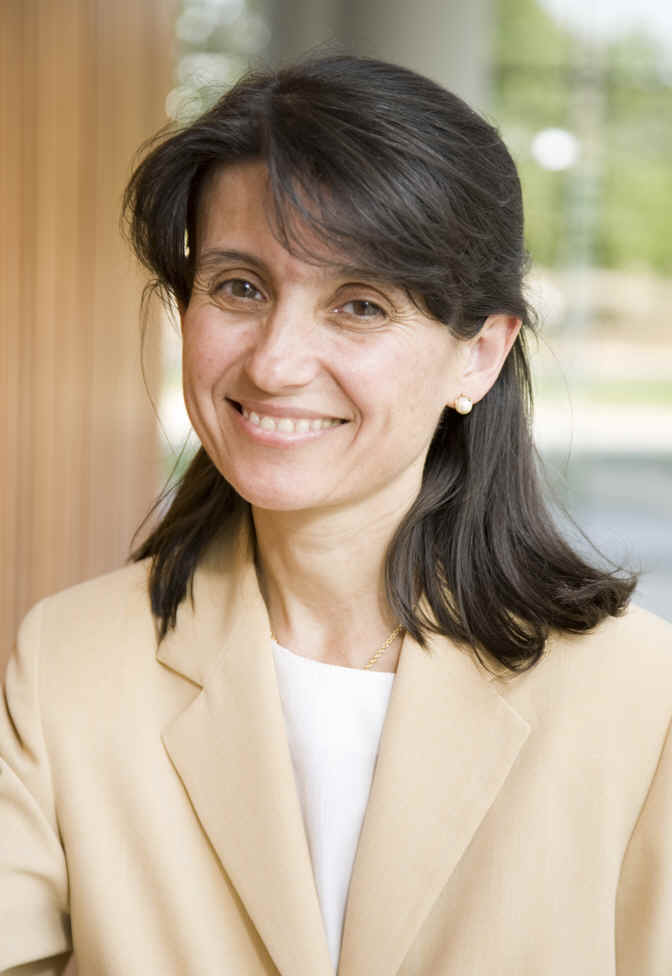
Dr. Cuervo has previously shown that autophagic activity decreases with age and her group is currently elucidating the molecular mechanisms responsible for this autophagic defect.
Recently, Dr. Cuervo’s laboratory has demonstrated that different autophagic pathways are activated in cultured cells in response to different stressors, and that blockage in one of these pathways is often compensated for by up regulation of another one. However, because the autophagic pathways are not redundant, compensation is incomplete and cells display increased susceptibility to stressors.
Based on these observations, Dr. Cuervo proposes that the decrease in autophagic activity with age could be in part responsible for the increased susceptibility to different stressors characteristic of old organisms.
To test this hypothesis, her group has developed two different mouse models with altered chaperone-mediated autophagy (CMA). She will use these models and mouse models with altered macroautophagy (MA) to determine the consequences that an impairment on the activity of different autophagic pathways has on cell function and the ability to adapt to stress.
The most novel aspects of this study are that Dr. Cuervo will analyze both autophagic pathways in the same stress contexts but in different organs. By analyzing the changes in CMA and MA in response to different stresses in liver, brain and immune cells (dendritic cells, T-cells and macrophages), Dr. Cuervo will be able to:
1) determine when each type of autophagy is required during the stress response;
2) discriminate general from cell-type specific autophagic responses;
3) relate the resistance of some organs to particular stressors to their ability to activate an autophagic response; and
4)
establish if the functional loss with age in particular organs is the
consequence of the age-related changes in autophagy in those organs.
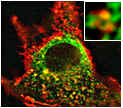
lipid microdomains at the lysosomal
membrane
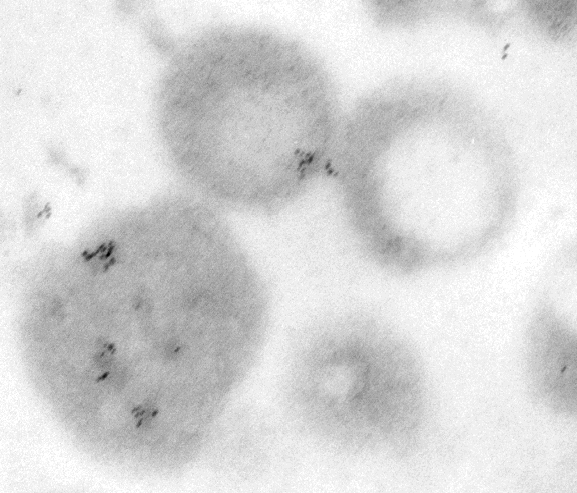
immunogold of isolated
lysosomes to discriminate LAMP-2A organization
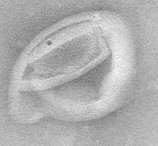
ultrastructure of lysosomal lipid
microdomains
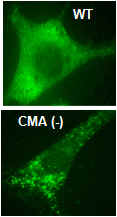
acumulation of ubiqutin positive deposits in CMA impaired cells